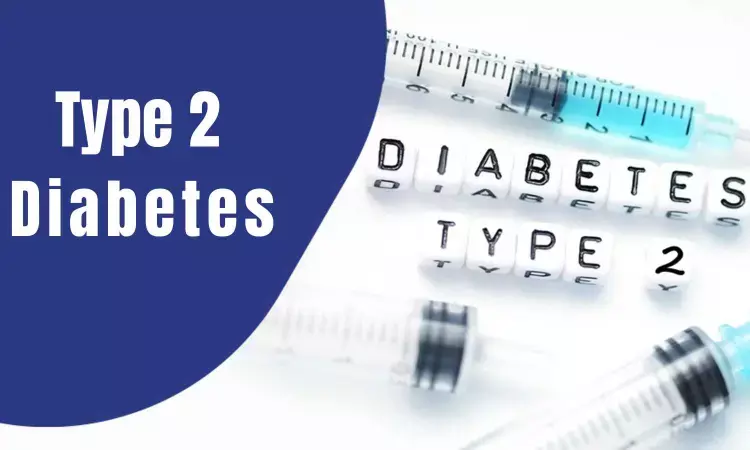- Home
- Medical news & Guidelines
- Anesthesiology
- Cardiology and CTVS
- Critical Care
- Dentistry
- Dermatology
- Diabetes and Endocrinology
- ENT
- Gastroenterology
- Medicine
- Nephrology
- Neurology
- Obstretics-Gynaecology
- Oncology
- Ophthalmology
- Orthopaedics
- Pediatrics-Neonatology
- Psychiatry
- Pulmonology
- Radiology
- Surgery
- Urology
- Laboratory Medicine
- Diet
- Nursing
- Paramedical
- Physiotherapy
- Health news
- Fact Check
- Bone Health Fact Check
- Brain Health Fact Check
- Cancer Related Fact Check
- Child Care Fact Check
- Dental and oral health fact check
- Diabetes and metabolic health fact check
- Diet and Nutrition Fact Check
- Eye and ENT Care Fact Check
- Fitness fact check
- Gut health fact check
- Heart health fact check
- Kidney health fact check
- Medical education fact check
- Men's health fact check
- Respiratory fact check
- Skin and hair care fact check
- Vaccine and Immunization fact check
- Women's health fact check
- AYUSH
- State News
- Andaman and Nicobar Islands
- Andhra Pradesh
- Arunachal Pradesh
- Assam
- Bihar
- Chandigarh
- Chattisgarh
- Dadra and Nagar Haveli
- Daman and Diu
- Delhi
- Goa
- Gujarat
- Haryana
- Himachal Pradesh
- Jammu & Kashmir
- Jharkhand
- Karnataka
- Kerala
- Ladakh
- Lakshadweep
- Madhya Pradesh
- Maharashtra
- Manipur
- Meghalaya
- Mizoram
- Nagaland
- Odisha
- Puducherry
- Punjab
- Rajasthan
- Sikkim
- Tamil Nadu
- Telangana
- Tripura
- Uttar Pradesh
- Uttrakhand
- West Bengal
- Medical Education
- Industry
Can low serum bicarbonate independently predict mortality in patients with type 2 diabetes?

Australia: Low serum bicarbonate may be a manifestation of the causal pathway between impaired renal function and death. Still, it is not an independent risk factor for mortality in type 2 diabetes, says a recent study published in Acta Diabetologica.
"The study showed that a baseline serum bicarbonate concentration < 22 mmol/L in community-based type 2 diabetes (T2D) patients significantly predicted subsequent all-cause mortality in statistical models incorporating limited adjustment for confounding variables," the researchers wrote. "This association was non-significant in fully adjusted models that included renal impairment."
The serum bicarbonate concentration is a commonly measured surrogate marker of acid–base status in community-based and hospitalized patients. Both metabolic and respiratory acid–base derangements affect the serum bicarbonate concentration, complicating its clinical interpretation. Nevertheless, recent studies have identified serum bicarbonate as a marker of mortality risk that is not dependent on other predictive variables.
There is evidence of an independent association between low serum bicarbonate concentration and all-cause mortality in representative community-based individuals, irrespective of whether the cause is a compensated respiratory alkalosis or metabolic acidosis. Low serum bicarbonate was an independent risk factor for mortality in some patients with hypertension or CKD (chronic kidney disease) but not in all studies. There is no clarity on whether low serum bicarbonate is an independent mortality risk factor among T2D patients.
Against the above background, S. A. Paul Chubb, University of Western Australia, Fremantle Hospital, Fremantle, WA, Australia, and colleagues aimed to examine whether all-cause mortality independently associates with serum bicarbonate concentration below the laboratory reference interval in a representative, well-characterized community-based cohort of type 2 diabetes patients.
The researchers followed 1478 FDS2 participants with type 2 diabetes with a median diabetes duration of 9 years (mean age 65.8 years, 51.6% males) from the observational, longitudinal FDS2 (Fremantle Diabetes Study Phase II) from study entry to death or end-2016. Multiple logistic regression was used to determine independent associates of a low baseline serum bicarbonate (< 22 mmol/L). A stepwise Cox regression approach assessed the role of important covariates in impacting the association between bicarbonate and mortality.
The study revealed the following findings:
- Low serum bicarbonate increased all-cause mortality in unadjusted analysis (hazard ratio (HR), 2.60 per mmol/L).
- Mortality remained significantly associated with low serum bicarbonate (HR 1.40 per mmol/L) in a Cox regression model with adjustment for mortality-related factors. Still, not low serum bicarbonate, but the inclusion of estimated glomerular filtration rate categories rendered the association non-significant (HR 1.16 per mmol/L).
"Our results are consistent with serum bicarbonate being one manifestation of the pathway from impaired renal function to mortality in type 2 diabetes patients," the authors wrote.
"Low serum bicarbonate in a patient being cared for in the community may be a valid marker of increased risk of death, particularly in patients with diabetes complications such as amputation or sarcopenia in whom the calculated eGFR may be less reliable," they concluded.
Reference:
Chubb, S.A.P., Davis, W.A. & Davis, T.M.E. Serum bicarbonate concentration and the risk of death in type 2 diabetes: the Fremantle Diabetes Study Phase II. Acta Diabetol (2023). https://doi.org/10.1007/s00592-023-02130-y
Dr Kamal Kant Kohli-MBBS, DTCD- a chest specialist with more than 30 years of practice and a flair for writing clinical articles, Dr Kamal Kant Kohli joined Medical Dialogues as a Chief Editor of Medical News. Besides writing articles, as an editor, he proofreads and verifies all the medical content published on Medical Dialogues including those coming from journals, studies,medical conferences,guidelines etc. Email: drkohli@medicaldialogues.in. Contact no. 011-43720751


